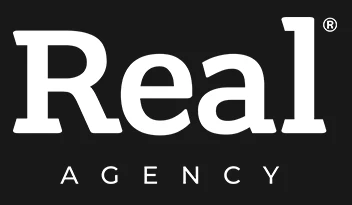Choosing The Wrong eCommerce Platform Could Be The Difference Between Life And Death For Your Business
The way some people speak about eCommerce websites, you’d probably think they are an automated package design model that does not suffer the same labour intense pains as, shall we say, a brick-and-mortar storefront. However, this couldn’t be further from the truth. In fact, eCommerce can be just as challenging as any other type of business out there. In some cases, even more, challenging than a more conventional company, simply because it is so reliant upon one single variable which will be the third party platform.
While building an eCommerce website does not involve arduous days in the scorching heat, the process is just as tiring in terms of designing, developing, managing and marketing. In order to build an eCommerce business, you will need to leverage a third party platform such as BigCommerce, Shopify, WooCommerce, Volusion and last but not least, our favourite, Magento. Of course, you can sell products independently through a custom built website, but in order to properly scale your operation, at a certain point you will need to call on one of these “big boy” platforms.
Any eCommerce entrepreneur will tell you that by far the biggest challenge in eCommerce is dealing with the limitations of the platform chosen for the project so deciding which platform will work best for your business is crucial. But with all the platforms out there, where do you even start?
It’s easy to see the war which is raging between the various eCommerce platforms competing for a piece of the explosive market. In Q2 of 2017, online sales exceeded $100 billion which was up 16.3% from Q2 exactly a year ago. Now, if that isn’t enough to make your jaw drop, Amazon’s total sales on Prime Day in 2017 exceeded an eye-watering $2 billion.
The eCommerce business model is incredibly profitable, not only for the vendors but also the platforms themselves who help the vendors sales from modest up to nine-figure businesses. So before you take the plunge, here are four things you really should consider when selecting the right eCommerce platform for your business:
Do Your Maths And Calculate All Of The Costs, And We Mean All Of Them.
All platforms have costs, that’s obvious! However, if you are coming out of the gate with a brand new business, you need to ensure you are able to support the cost of your desired eCommerce platform before you start spending the cash. A great piece of advice is to work in costs from the very beginning. Know how much your budget is for the duration of the project, rather than that initial package bundle buy. This leads on nicely to whether you need to account for paying a flat monthly fee or if you should expect to pay out more for transactions, bandwidth, server storage, apps and plugins later down the road. All of these costs need to be considered in your final decision to ensure they fit within your business model and any existing cash flow.
Do Your Own Damn Research!
If you want to succeed in business then you can’t just follow the crowd. What we mean by this is don’t base one of the biggest decisions when setting up an eCommerce store on what other companies are doing or what their marketing team say they are doing. Your business is unique – so you do you!
Our advice is to take your time and do your homework on each of the platforms you are considering. If you feel the need get on the phone with a sales rep and ask questions, then go ahead and do it. The more information you know, the better understanding you will have of what you are signing up for. Most importantly, check the functionality that is required for your business to operate and thrive successfully will be included in what you are paying for.
Determine whether the platform serves all of the functions your business requires and don’t be scared to ask about things that may seem basic such as editing orders or email automation to your customers. eCommerce platform companies have their own individual marketing strategies and it can be easy to fall into the trap of believing the hype and only reading the positive side of platforms try to make you believe that their platform is going to be the next big thing.
Take our advice, do your homework, save your business.
Ensure Your Team Can Use The Platform.
It really is amazing to see how different a website experience can be based on the platforms user interface. However, before you decide to sign up for a specific platform based on its user interface, make sure that you’ve considered who on your team will be using it. You and your team are going to be spending a lot of time using the platform so if not all your team are able to work with it or find it confusing or difficult then maybe you should consider using a simpler platform.
At the end of the day, eCommerce platforms are there to make buying your products and services easy for your users. So, unless those primary goals are being accomplished, its the wrong fit for your company.
You are going to be so much better off learning those hard lessons before you build your entire business on a platform that just isn’t the right fit.
Select The Right Hosting Company.
The same applies when it comes to your hosting company. The last thing you want is to go through all the effort of selecting an eCommerce platform, only to end up having server problems. Not to mention that a poor hosting platform could have a negative impact on your site loading speed causing your search rankings to fall or worse, bring your site down.
Again, the right decision here comes with research. Researching the different hosting options up front is vital if you want to avoid the hassle of switching hosting companies. In some cases, you will have the ask the developer to backup the entire site and help you move it over to a new host, and this can take days to complete.
Below we’ve listed some important questions that we recommend you ask any hosting company before signing:
- Will they provide you with 24/7 support?
- Will they also provide daily backups of your site?
- Is your site going on a shared server, if so, how many other sites are on one server at any given time?
- What are the security precautions that need to be taken when you are sharing a server with various other companies?
- Will the shared server impact your outgoing emails to customers in the event that one of the other companies on the server gets blacklisted as spam?
The bottom line here is that after all the time, money and effort companies send dedicated to designing a site that will convert traffic into those all-important sales, it’s of the utmost importance to ensure the site is up and running 100% of the time. The host is where your site will live, and therefore it should be the most reliable and effective service.


